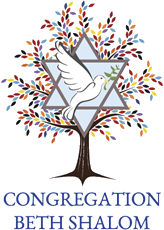Franz Kafka is perhaps one of the most Jewish of all writers. This is, in part, because Kafka understood that one of Judaism’s recurring themes is that reality is the ultimate illusion — what we are told we are seeing is not what we are really seeing. In Kafka’s The Metamorphosis, Gregor Samsa talks of his metamorphosis, when it is, in fact, his family that changes. In a similar vein, when we look at our scriptures, we see texts that can be literal, allegorical, mystical, and just plain hard — all at the same time.
Likewise, we spend the entire High Holy Days asking God to forgive us for our misdeeds. But when pushed, we must admit that what truly matters most — ALL that really matters — is what WE do. Will we change? If yes, then it does not matter whether God forgives us or not. If we do not change, then it truly does not matter if God forgives us, because nothing of importance has happened.
And Passover is full of plain, straightforward statements that are not what they seem to be.
The youngest child traditionally recites The Four Questions — which is, really, only one question, “Why is this night different?” followed by four statements. Why do we call it something we know it is not? The Four Children — we present each of them as different, yet two of them ask the exact same question.
We spend the Seder retelling the miraculous rescue of our ancestors from Egypt as we are commanded to do. And, indeed, this historic event altered both the religious and social structure of the Jewish People. But in the traditional Haggadah, Moses is mentioned only once . . . surprisingly little for one of the main actors in this wonderful drama. The rabbis explain that this is so the emphasis stays on God, but isn’t it God who over and over again stops Pharoah from freeing us?
So many issues! So many questions!
Maybe the reason for all this “reality that isn’t” is to remind us that there is another actor of equal importance on the Passover stage, the Hebrew people of Israel. If they had been unwilling to take the incredible risk of shaping their own destiny, of taking their future into their own hands, then the Exodus could never have happened.
And, if we are not willing to ask, truly to question, whether the reality of the past is still our reality, or merely illusion — if we choose to dwell sightless in the past — how can we ever make the Exodus our own?
May this Passover season be one of health and happiness, a time of renewal and a time of freedom for all.
B’Shalom
Rabbi Stanley Halpern
